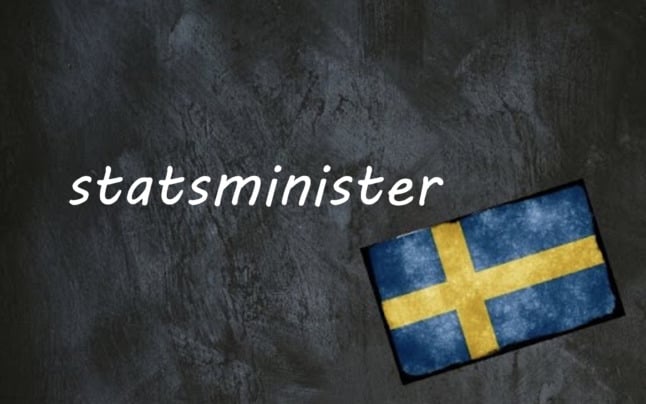The word statsminister – literally “state” and “minister” – is the Swedish, Danish and Norwegian word for a prime minister.
It is primarily used for Nordic prime ministers, with prime ministers of other countries, such as the UK’s prime minister Boris Johnson and Australia’s prime minister Scott Morrison, being referred to as premiärminister (plural: premiärministrar).
Sweden has had 33 different statsministrar (with the first being Louis de Geer from 1876-1880), and the most recent being Social Democrat Stefan Löfven, who became Sweden’s prime minister in 2014.
Sweden has had universal suffrage since 1921, meaning men and women are both able to vote (although the minimum voting age at this time was 23 years of age).
Since then, the Social Democrats have been in power for the vast majority of time.
Two of Sweden’s prime ministers have died in office. The first was Social Democrat Per Albin Hansson, prime minister between 1932 and 1946 (minus June to September 1936, when the now-Centre Party were briefly in power).
The second was Social Democrat Olof Palme, who was Sweden’s prime minister between 1969 and 1976, and then again between 1982 and his assassination in 1986.
The Swedish prime minister’s official residence has been Sagerska huset, referred to as Sager House in English, since 1995.
Sagerska huset is located on Strömgatan in central Stockholm. Prior to this, prime ministers did not have an official residence – those holding the position kept their private residences while in power.
The establishment of an official residence for prime ministers came about after a cross-party agreement on increased security for prime ministers after Palme’s assassination.
Sweden’s prime minister has been officially appointed by the speaker of parliament since 1976. Before this date, the monarch had this responsibility.
Similarly, until 1976, Sweden’s prime minister held the title of Hans Excellens Statsminister or His Excellency Prime Minister, whereas now he is referred to as Herr Statsminister, Mr Prime Minister, or Fru Statsminister for a female prime minister.
Examples:
Kommer Sverige få sin första kvinnliga statsminister i dag?
Will Sweden get their first female prime minister today?
Vem är din favoritstatsminister? Jag gillar Olof Palme.
Who is your favourite prime minister? I like Olof Palme.
Villa, Volvo, Vovve: The Local’s Word Guide to Swedish Life, written by The Local’s journalists, is now available to order. Head to lysforlag.com/vvv to read more about it. It is also possible to buy your copy from Amazon US, Amazon UK, Bokus or Adlibris.



 Please whitelist us to continue reading.
Please whitelist us to continue reading.
Member comments